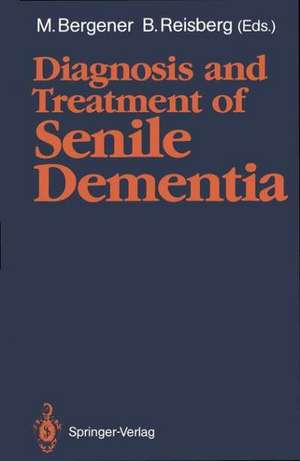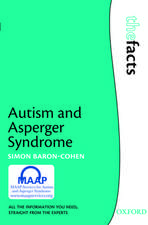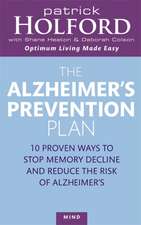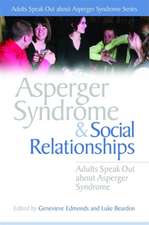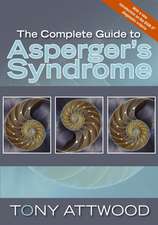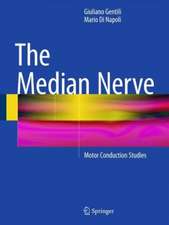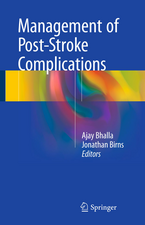Diagnosis and Treatment of Senile Dementia
Editat de Manfred Bergener, Barry Reisbergen Limba Engleză Paperback – 30 mai 1989
Preț: 679.64 lei
Preț vechi: 715.42 lei
-5% Nou
Puncte Express: 1019
Preț estimativ în valută:
130.05€ • 135.78$ • 107.63£
130.05€ • 135.78$ • 107.63£
Carte tipărită la comandă
Livrare economică 01-07 aprilie
Preluare comenzi: 021 569.72.76
Specificații
ISBN-13: 9783540508007
ISBN-10: 3540508007
Pagini: 412
Ilustrații: XX, 396 p.
Dimensiuni: 156 x 244 x 22 mm
Greutate: 0 kg
Editura: Springer Berlin, Heidelberg
Colecția Springer
Locul publicării:Berlin, Heidelberg, Germany
ISBN-10: 3540508007
Pagini: 412
Ilustrații: XX, 396 p.
Dimensiuni: 156 x 244 x 22 mm
Greutate: 0 kg
Editura: Springer Berlin, Heidelberg
Colecția Springer
Locul publicării:Berlin, Heidelberg, Germany
Public țintă
ResearchDescriere
Senile dementia is one of the major health problems confronting mankind in this century. To some extent the problem has, of course, always existed. The condition was sufficiently troubling to classical philosophers and jurists to have apparently provoked comments by Solon in approximately 500 B. C. and Plato in the fourth century B. C. (Plutarch 1967 translation; Plato 1921 translation). Medical recognition can be traced at least as far back as the second century A. D. (Adams 1861). However, several factors have converged in this century to extend the absolute dimensions of the problem of senile dementia and to increase societal, medical, and scientific recogni tion of the magnitude of the condition. Perhaps the most important factor relating to the present importance of senile dementia is demographic. Although the human population has been increasing since the mid-eighteenth century, it has only been since the advent of the twentieth century that a decrease in mortality has been noted for those over the age of 45 (McKeown 1976). Consequently, the absolute number of aged persons and the proportion of increasingly aged persons in the populations of the world's industrial nations have been steadily increasing. For example, in the United States, 4% ofthe population was over the age of 65 in 1900. In the 1970 census, this proportion had grown to 10%.
Cuprins
The Future of Psychogeriatrics.- Future of Psychogeriatrics: A Multidisciplinary Approach with Applications for Clinical Practice.- An Overview: Current Knowledge and Needs.- What is New and what is Necessary in Dementia Research?.- Epidemiology of Dementia.- Epidemiological Study on Age-Associated Dementia in Japan.- Risk Factors for Dementia: A Review of Hypotheses and Current Epidemiological Evidence.- Neuropathologic and Neurochemical Aspects of Dementia.- Alzheimer’s Disease — Histopathological, Neurochemical, and Molecular Biological Aspects.- Neurochemistry of Dementia: Clinical Pathological Relationships.- Differential Diagnosis of Dementia.- Depression Versus Dementia: Further Evidence from the Liverpool Outcome Studies.- Age-Associated Memory Impairment, Benign Forgetfulness and Dementia.- Current Problems in the Clinical Diagnosis of Vascular Dementia.- Affective Disorders in Elderly and Dementing Patients.- Psychological Assessment of Aging and Dementia.- Psychological and Cognitive Factors in Psychogeriatric Memory Assessment.- Essentials of Psychological Assessment of the Mentally Ill Elderly: Mild Cognitive Impairment and the Issue of Plasticity.- Psychological Methods for the Assessment of Performance and Emotionality in Elderly Patients.- The SKT — A Short Cognitive Performance Test as an Instrument for the Assessment of Clinical Efficacy of Cognition Enhancers.- Basic Clinical and Diagnostic Characteristics of Senile Dementia.- Early Diagnosis of Dementias.- Symptomatic Changes in CNS Aging and Dementia of the Alzheimer Type: Cross-Sectional, Temporal, and Remediable Concomitants.- Diagnosis and Treatment of Senile Dementia: Early Diagnosis and Differential Diagnosis.- Stretegies for Treating Alzheimer’s Disease and Age-Associated Memory Impairment.- The Use of Positron Emission Tomography in the Early Diagnosis of Senile Dementia.- An Approach to the Treatment of Senile Dementia: Calcium Channel Modulation.- Pharmacology.- Molecular Pharacology of Calcium Channel Modulation.- Calcium Homeostasis in Brain Aging and Alzheimer’s Disease.- Nimodipine and Neural Plasticity.- Old Rats as an Animal Model for Senile Dementia: Behavioural Effects of Nimodipine.- Transfer of Nimodipine and Another Calcium Antagonist Accross the Blood-Brain Barrier and Their Regional Distribution in Vivo.- Tissue and Cellular Protective Effects of Nimodipine.- Clinical Results with Nimodipine.- Therapeutic Efficacy of Nootropic Drugs — A Discussion of Clinical Phase III Studies with Nimodipine as a Model.- Therapeutic Results with Nimodipine in Primary Degenerative Dementia and Multi-Infarct Dementia.- Nimodipine Treatment Improves Cognitive Functions in Vascular Dementia.- Nimodipine in the Treatment of Alzheimer’s Disease.- Nimodipine for Psychogeriatric Use: Methods, Strategies, and Considerations Based on Experience with Clinical Trials.- Subjectlndex.
